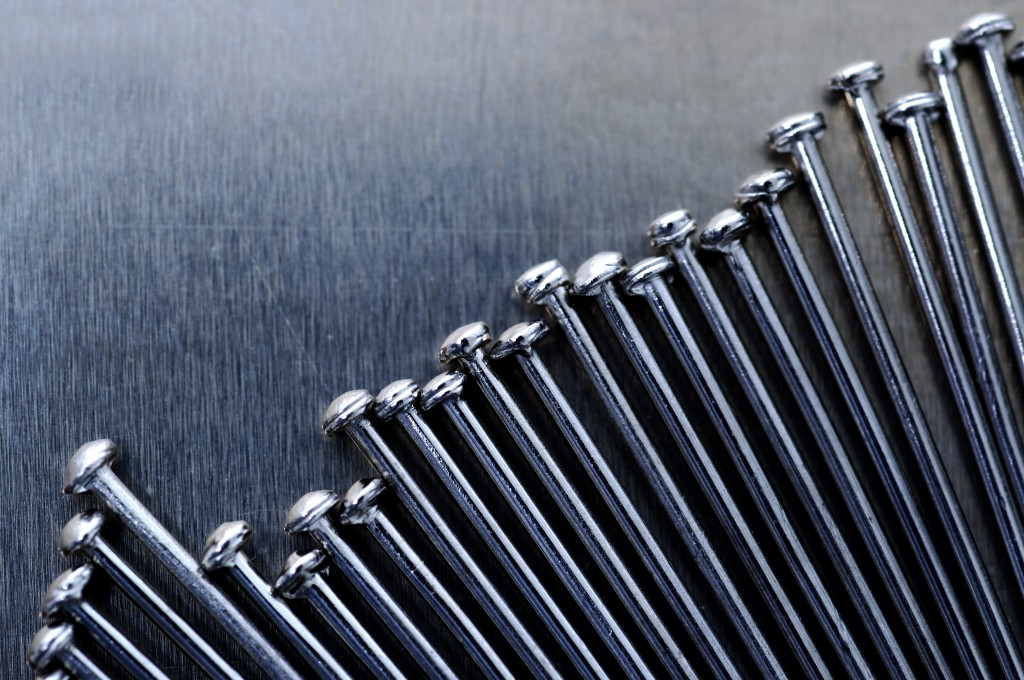 Sometimes patients will come to me and are often surprised when I refer them to an acupuncturist for relief of chronic conditions rather than trying another prescription. Although there are times when a prescription is appropriate, I prefer to start treating a condition as naturally as possible and then add prescription drugs, if necessary, as a last resort.
Sometimes patients will come to me and are often surprised when I refer them to an acupuncturist for relief of chronic conditions rather than trying another prescription. Although there are times when a prescription is appropriate, I prefer to start treating a condition as naturally as possible and then add prescription drugs, if necessary, as a last resort.
Acupuncture is a centuries-old medical procedure that allows for the successful treatment of numerous conditions safely without drugs! Time and again I’ve seen it work wonders where traditional medical treatments have failed. If you’re, perhaps, thinking of looking into acupuncture as treatment for a chronic condition, you’d be in good company as some 15 million Americans have tried, and found beneficial, the amazing benefits of acupuncture. I’d like to share some of those benefits with you and what I advise my patients about acupuncture!
What Is Acupuncture?
Acupuncture has been part of Asian (Japan and China) Medicine for centuries. It is the process of inserting tiny hair-like needles into specific meridians on the body that are thought to correspond to specific organs. It is believed that blocked energy (chi) flow to organs is what causes dysfunction and creates illness. Inserting needles into these meridians is thought to stimulate and unblock the flow of chi to organs and allow them to become well again.
Acupuncture is thought to work by stimulating endorphins which are pain-relieving “feel good” neurotransmitters in the brain. Acupuncture also stimulates immune system function and circulation, relaxes muscles, and increases joint flexibility.
What Can Acupuncture Be Used For?
My patients are amazed when I tell them that acupuncture can be used to successfully treat and relieve symptoms of a whole host of ailments including the following:
• Carpal tunnel, tennis elbow, golfers elbow
• Neck, hip, shoulder and back pain from pinched nerves, sciatica, herniated disks
• Infertility, menstrual difficulties, pregnancy strains, menopause issues
• Allergies
• Drug, alcohol, smoking addictions
• Anxiety, insomnia, depression, stress management, irritable bowel syndrome
• Weight loss
• Headaches and temporomandibular joint (TMJ) disorder
• Sports and other injuries
• Facelift
Different Types of Acupuncture
There are several styles of acupuncture, but all are designed to stimulate the specific meridians mentioned earlier. Depending on what your specific needs are, and what type of acupuncturist you visit, the following styles of acupuncture may be used:
• Traditional Chinese Medicine – this is the oldest practice of medicine and commonly used style involving the traditional inserting of needles into meridians. However, TCM acupuncturists also incorporate newer styles that can include electroacupuncture and acupressure. Acupressure does not involve inserting needles, rather simply placing pressure on the meridians with the finger tips.
• Japanese – basically the same as Chinese, with the difference being that a finer needle is used that works more superficially and gently. Also, Japanese style uses a guiding tube which greatly reduces any pain on insertion of the needle.
• Medical – used as an adjunct to a physician’s practice, namely MD’s, physical therapists, chiropractors, and naturopaths, as one part of treatment practices.
• Electroacupuncture – using the same meridians as regular acupuncture, the needles are attached to electrodes which send slight electrical stimulation into the meridians. This style is very similar to the use of a TENS unit which stimulates certain nerve points for pain relief.
How To Choose An Acupuncturist
The practice of acupuncture has become a more widely accepted mainstream practice. However, it’s important to know that acupuncturists may or may not be doctors. Some are specifically licensed acupuncture practitioners while others are both physicians and acupuncturists. Here’s what I tell my patients to look for when choosing an acupuncturist:
Education/Background: Ask the acupuncturist for their training background and licenses, as some states do not regulate the teaching/practice of acupuncture. It’s a good idea to choose one that is registered with the regulatory body of their state. Not all states regulate acupuncture.
Experience: How long have they been practicing? Choose an acupuncturist who has an established practice or a new acupuncturist under the guidance of a more experienced acupuncturist.
Insurance: Some medical insurance plans cover acupuncture treatments. Ask your acupuncturist if they accept any insurance plans and check with your carrier to see if it is a covered treatment.
Acupuncture can help treat a health concern naturally without drugs, side effect, and, relatively, noninvasively. In fact, many people find that, with acupuncture, they no longer need prescription drugs or surgery. It can also be a very relaxing experience which also helps to restore the flow of positive energy throughout the body. Try it! You, too, might finally throw away that prescription!
